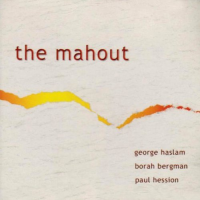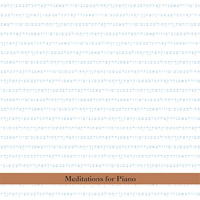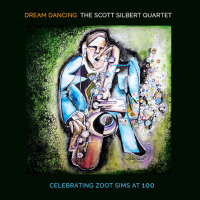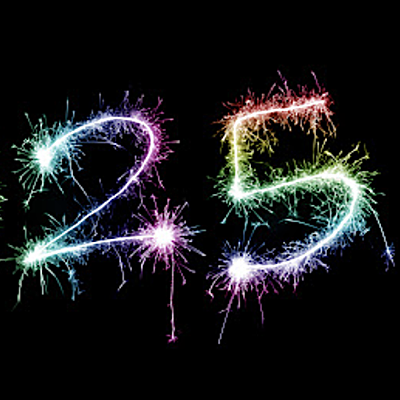Home » Jazz Articles » Borah Bergman
Jazz Articles about Borah Bergman
Borah Bergman - Giorgio Dini: One More Time

by AAJ Italy Staff
Una mano sinistra con pochi eguali nella storia del jazz, una mano destra che sembra ricevere impulsi incontrollabili dalla sua compagna, e gli incroci pericolosi, frenetici, geniali fra le dieci dita. Lui è Borah Bergman, settantacinque anni di saggezza, di sperimentazione, di discrezione, di oscuro lavoro lontano dai riflettori, e di straordinaria ammirazione da parte dei colleghi. Bergman e la sua musica sfuggono a qualsiasi tipo di catalogazione, di ingabbiamento, le improvvisazioni hanno radici nell’insegnamento del free ma poi seguono ...
Continue ReadingBorah Bergman / Lol Coxhill / Paul Hession: Acts of Love

by Clifford Allen
The number of piano/reeds/percussion trios in the history of improvised music can probably be counted on a single hand, but some of them have been highly influential. Cecil Taylor's trio recorded such a set in 1962 at the Café Montmartre in Copenhagen, the entrée into free percussion beginning with Sunny Murray's fragmented bebop impulsions as Taylor and alto foil Jimmy Lyons expanded upon Bud and Bird, even as tradition became so much mincemeat. Saxophonist Evan Parker, pianist Alex von Schlippenbach ...
Continue ReadingBorah Bergman: You Must Judge A Man By The Work of His Hands

by AAJ Staff
Borah Bergman is a one-of-a-kind pianist, composer and improviser whose originality lies in his entirely unique approach and utilization of left-handed and cross-handed techniques. Influenced by Lennie Tristano's hornlike phrasing and Monk's stride, Bergman has prolifically released on average one to two CDs a year since the early '90s (primarily solos and duos) featuring Thomas Chapin, Roscoe Mitchell, Oliver Lake, Evan Parker, Anthony Braxton and Peter Brötzmann. Last month, AAJ-New York caught up with Bergman at his Upper West Side ...
Continue ReadingBorah Bergman and Tom Chapin: Toronto 1997

by Clifford Allen
Naked confrontation, or a pact made between two individuals to make something from nothing... freely improvised duets are, if not the “meat and potatoes" or backbone of free music, then at least one of the truest expressions of such an art form. A dialogue formed between two individuals, each with their own language, is that call-and-response vaguely outlined somewhere in “Sister Sadie" but run through the process of “as if one's life depended on it." Such an encounter is that ...
Continue ReadingGeorge Haslam/Borah Bergman/Paul Hession: The Mahout

by Ty Cumbie
On The Mahout, three well established musicians meet, almost for the first time, and produce an album from thin air. Yes, this is free improvisation in the age of instancy, but this is still a remarkably spontaneous product. According to the brief liner notes, the trio met for a beer, then recorded the next morning. Evidently it was only one beer—these men are no college kids, and the music reveals no trace of hangover. The title track, if anything, might ...
Continue ReadingBorah Bergman: Meditations for Piano

by AAJ Staff
In a day and age of recording over-saturation, most covering too much ground over the course of a 70-plus minute CD, Bergman’s Meditations for Piano remains focused on a massaging mood established from note one to the final minute-and-half “Meditation 7,” all in under 50 very digestible minutes. Influenced early on by Lennie Tristano, Bud Powell, Monk, and the classical works of Charles Ives, Bergman has unjustifiably been compartmentalized as a Cecil Taylor-esque player. Comfortable playing melodies ...
Continue ReadingBorah Bergman with Conny Bauer & Mat Maneri: The River Of Sounds

by Glenn Astarita
Three distinguished proponents of the jazz-based avant-garde, or new music, scene converge for a somewhat frenetic encounter of musical minds on The River Of Sounds. Pianist Borah Bergman's Cecil Taylor-like excursions are enhanced and personalized by his acute sense of rhythm, inquisitive statements, intervallic leaps, and gargantuan block chords. On the sixteen-minute opener titled “Jim," the pianist commences the agenda with a simply stated, three-chord progression, while his musical cohorts accelerate the momentum with eruptive dialogue. The trio frequently alters ...
Continue Reading
















